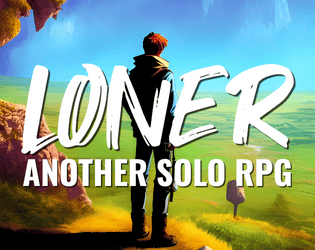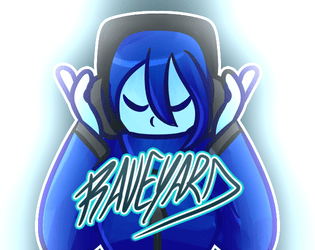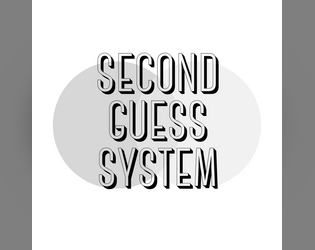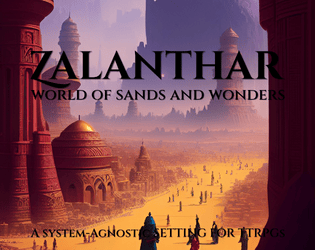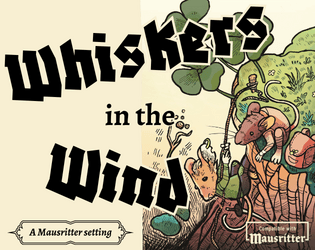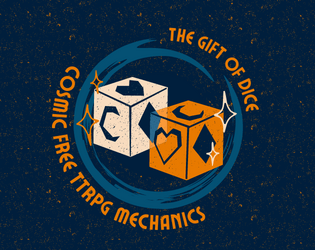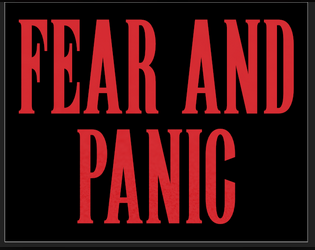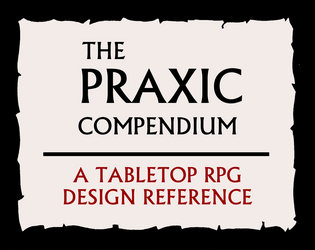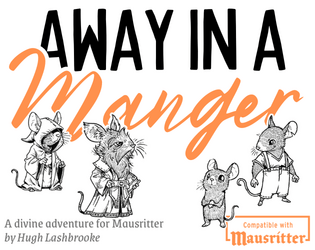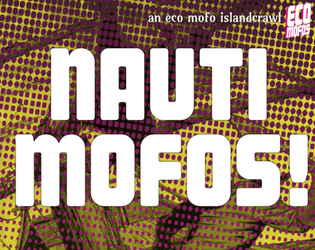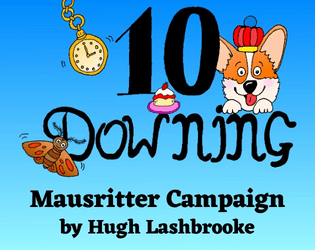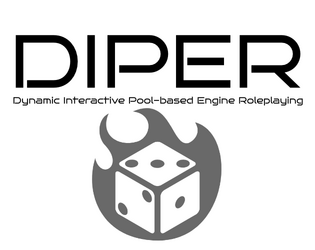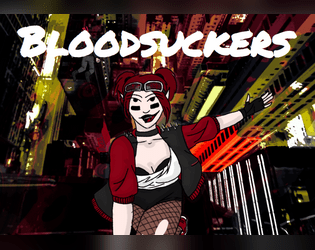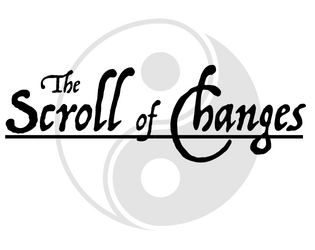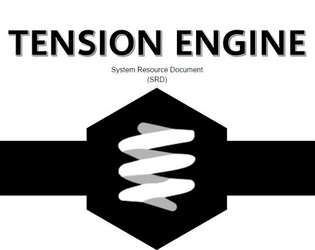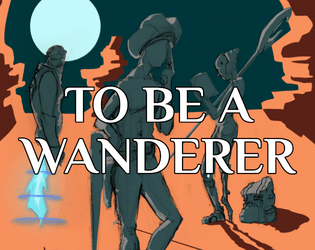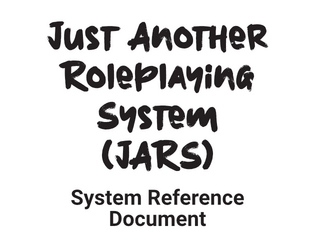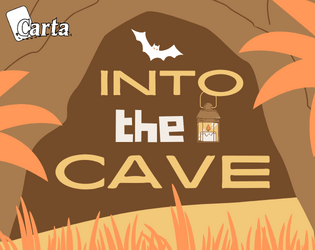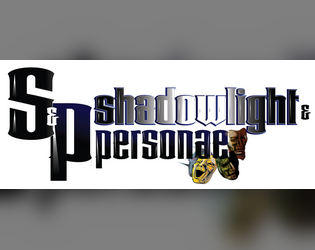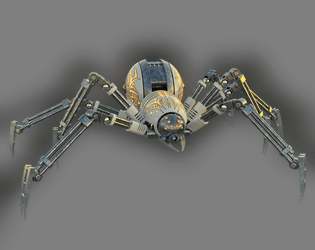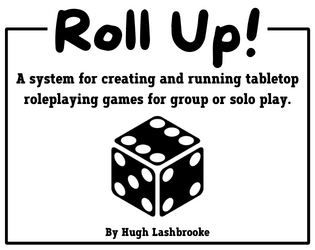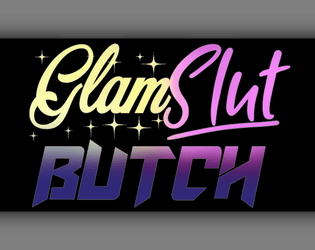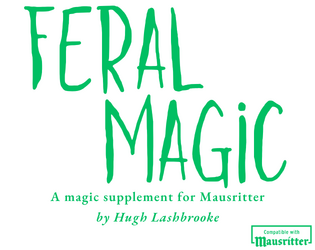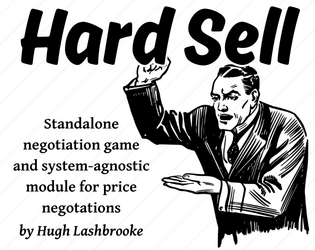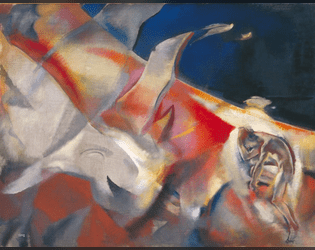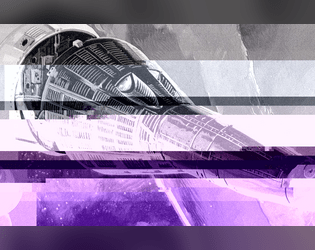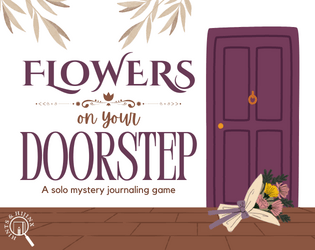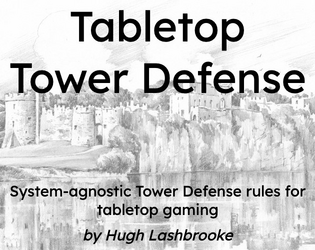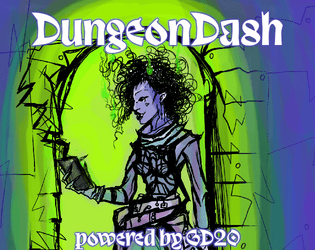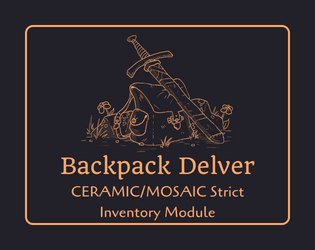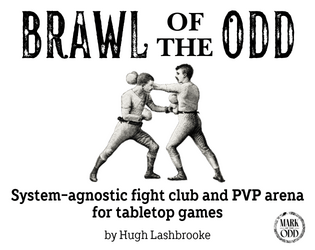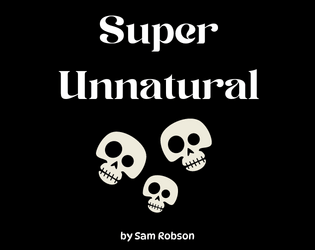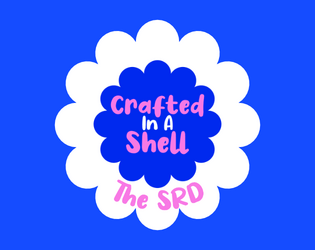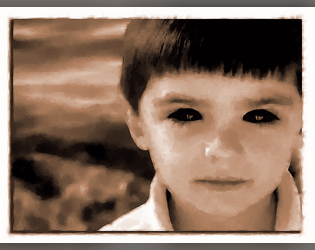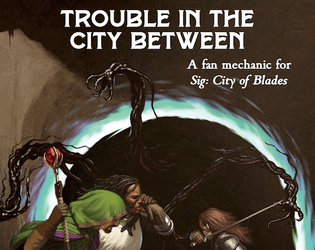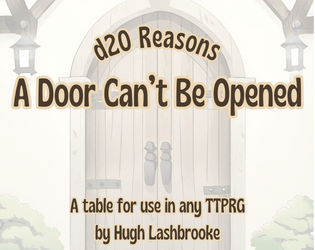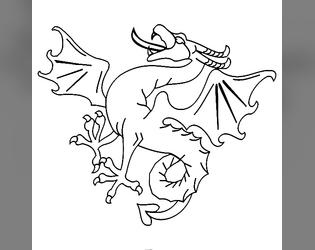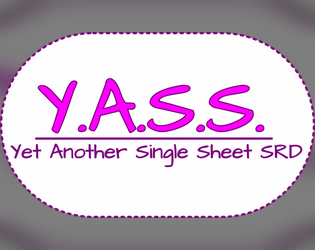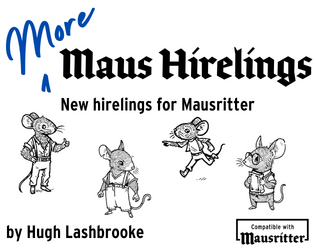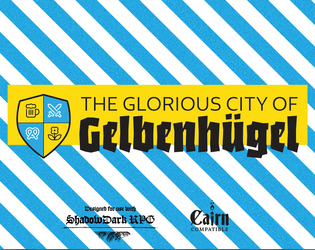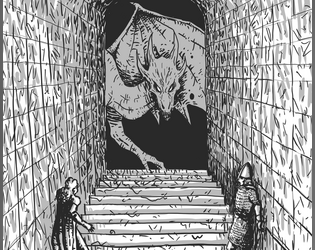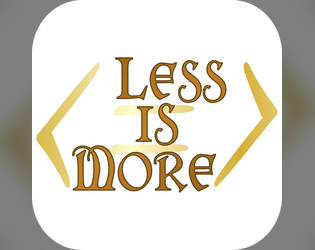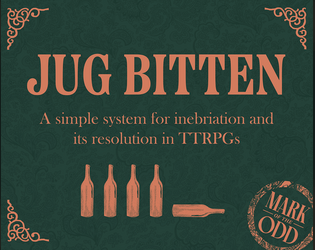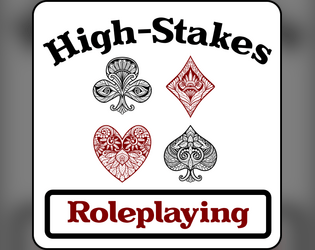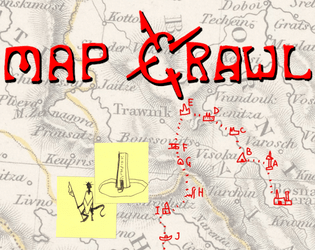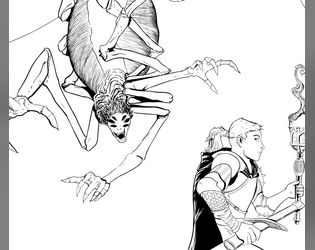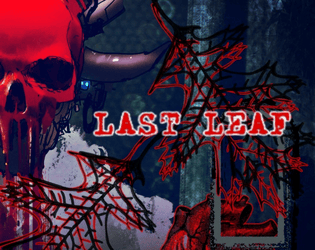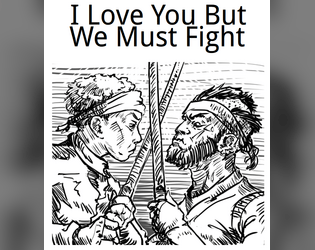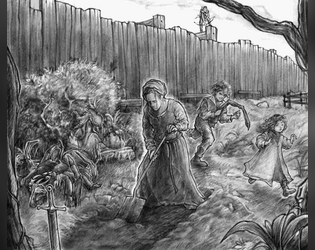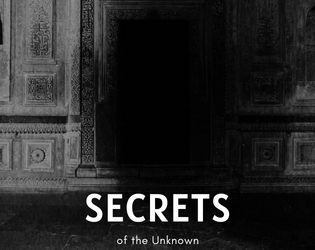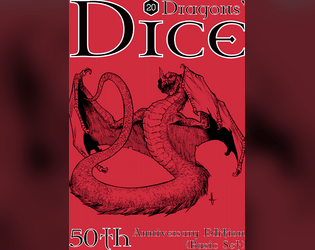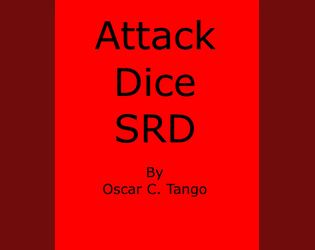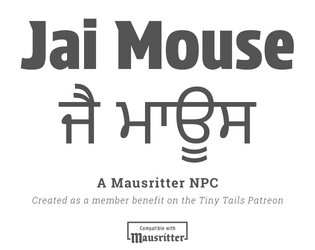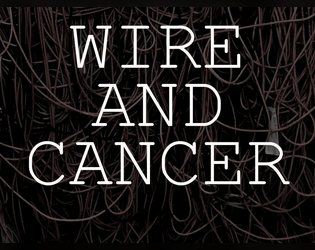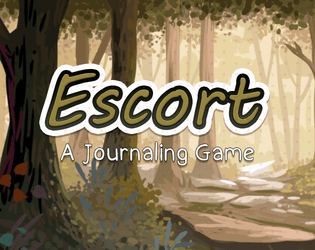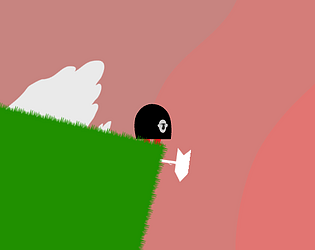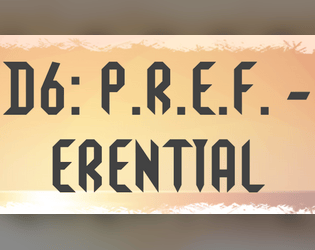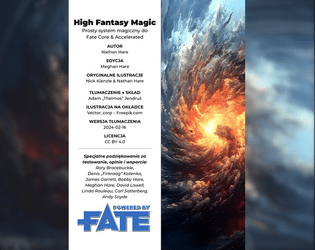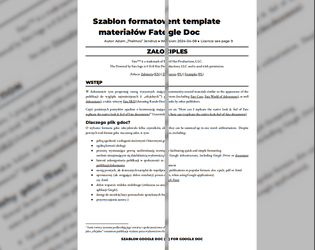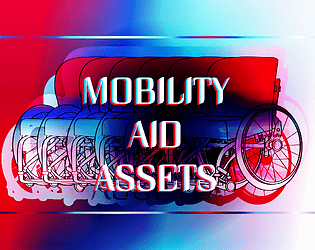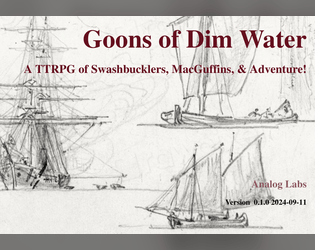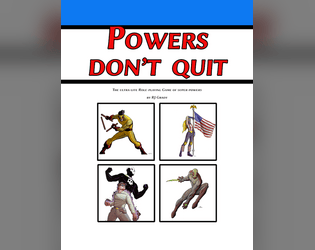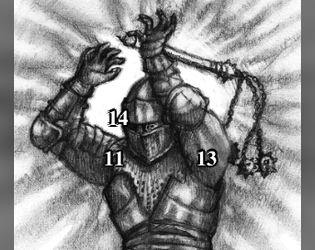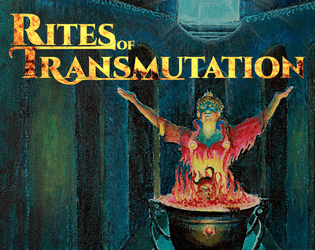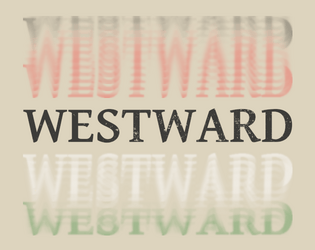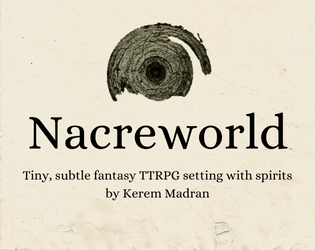
This jam is now over. It ran from 2024-01-01 05:00:00 to 2025-01-01 04:59:59. View 86 entries
Celebrate Open Gaming!
Welcome to the second yearly Forever Open Source Jam! Take a moment to review all the fantastic entries from the 2023 edition!

- open source gaming is amazing
- spreading the word about open licenses is always a good thing
- highlighting irrevocable licenses is important for preserving open gaming
Open content and community sharing movements like Creative Commons are increasingly important. They enable the expansions of the open source movement in tabletop gaming. This jam will run until the end of the year, allowing plenty of time for people to create whole SRDs, games, and other open gaming resources!

- Entries must use open licenses. Licenses must allow for free use, including royalty-free commercial use.
- Entries must use explicitly irrevocable licenses. Use licenses with direct and explicit terms guaranteeing an irrevocable grant of rights. Some licenses, such as OGL, lack this feature. The Creative Commons Attribution and Attribution ShareAlike licenses are popular examples of irrevocable open licenses.
- All text, images, and other intellectual property released as open license must be created by you, sourced from the public domain, or drawn from irrevocably open licensed material. Be sure to give proper credit and otherwise comply with any license conditions, terms of permission, or so on for any material used.
- Note: You may follow the Thirsty Sword Lesbians model and release only the text or other main material under an open license, but not the images, trade dress, or other accompanying elements. If you take this option, you must clearly indicate which parts are open licensed or not and you must use a license permitting it, such as a Creative Commons option.
- Create anything from new SRDs to adventures for open licensed games to open source clip art. Anything TTRPG related is in bounds! As long as you use an open license that protects creators with irrevocable terms, it's fair game.
FAQ
- What about my OGL/homebrew license/other free licensed game? For this jam, your terms must include irrevocability. GPL, CC licenses, and some others include it. Otherwise, you may (if you wish) add a section to your license or distribution statement stating that the terms offered are irrevocable, that the agreement cannot be terminated except for violation of terms, or some equivalent. You may also choose to multi-license, offering your game under an additional license (like CC-BY-SA) rather than altering the existing terms.
- What kind of things can I submit? Literally anything permanently open licensed useful for tabletop roleplaying games. SRDs, games, and adventures are obvious. But you are also encouraged to submit all varieties of art, document templates, sound packs for APs and podcasts, gameplay soundboards, open source dice rollers, theme music, icons, fictional worlds, character sheet builders... all of it! If gamers and creators in the space could make use of it in a TTRPG context, it's fair game.
- What about AI-generated content? Large language model (LLM) text, AI "art", and similar modern AI model outputs are explicitly prohibited. Large models and modern AI are trained on and can be prompted for derivatives of unlicensed material. The ownership and rights status of their outputs are also unclear, disqualifying them from the conditions and spirit of this jam.
- TL;DR and basic rule:
- NO AI ART OR TEXT, DO NOT USE AI GENERATED CONTENT.
- TL;DR and basic rule:

NOTE: If a community member compiles a good list of additional resources that comply with the open and irrevocable requirements [SRDs, art, games, solo oracles, anything relevant], happy to link! Drop a post in the jam's community forum.
If you are the creator of any resource listed below and would like the listing altered or a different URL used, please let me know!
Open Licenses
- Creative Commons Zero ("CC0"). Release your work into the public domain. The most open license. Creative Commons Attribution ("CC-BY"). Allows anyone to use your work as long as they give credit. The most common irrevocable open license used by TTRPG publishers and creators. Creative Commons Attribution ShareAlike ("CC-BY-SA"). Allows anyone to use your work as long as they give credit and use the same license. This is the classic "viral" open source type of license. It ensures all derivative works remain open in the same way.
- GNU Public License ("GPL"). One of the granddaddy open source licenses. Aimed towards software and a little more complicated, but enduringly popular in the open source movement and occasionally used for tabletop games.
- Anti-Capitalist Attribution Cooperative License. An example of a newer type of irrevocable license growing in popularity for some indie games. Targeted for the use of cooperatives and individual users without institutional affiliations.
Open Source RPG Resources
Quick Choices
- Top 50 Most Popular entries from the original 2023 Forever Open Source Jam.
- Motif, d6 based oracle system usable for solo/GM-assistant oracles and game systems alike, from Thought Punks. (Links: SRD. Quickstart. SRD games: 1, 2, 3, 4, 5, 6.)
- Caltrop Core by Titanomachy RPG, a popular and unique lite system based around the underrated d4, . (Links: SRD.)
- Charge, a d6 based action driven system by RP Deshaies, one of the Forged in the Dark forks . (Links: SRD. Web version.)
- Fate, one of the original "modern" game systems. Published by Evil Hat, one of the first TTRPG publishers to adopt Creative Commons licensing. (Links: Fate Core. Fate Condensed. Fate System Toolkit.)
- GUMSHOE, an popular investigative/procedural driven game system, from Pelgrane Press. (Links: PDF SRD. Web version.)
- TTRPG Creators Resource Database. Lists a wide variety of resources for tabletop game developers.
- Safety Tools & Wellbeing: A Curated List. A collected list of TTRPG safety tools and wellbeing resources.
Open SRDs
- 24XX, lo-fi sci-fi RPG SRD.
- BInAS (Balanced Integrated Attribute System) SRD, d12-based system built around pairs of attributes between which the player chooses a balancing or pivot point at which the two meet.
- Breathless, a creation toolkit that helps you design a game where every mechanic ratchets tension up to dangerous consequences.
- The Buddy System, perfect for story-based character driven games where characters are stronger together.
- Carta, a toolkit for making exploration focused solo RPGs.
- Duels SRD, a unique resource to make games about bardic dueling!
- DramaSystem, the system used in Hillfolk by Pelgrane Press.
- EMERGE8, for TTRPGs you design as you play.
- GOSS (GrimOgre Storytelling System), a mostly diceless system with haggling over action details, inspired by Nobilis and Engel.
- Hopes & Dreams SRD, goal focused system that puts player characters against what they dread the most in every single roll.
- Peregrine SRD, toolkit for creating card-based solo journaling games.
- Push SRD, lightweight, story-driven RPG system designed for cooperative, action-packed adventures.
- The Resistance Toolbox, the same rules that power Heart and Spire.
- Threads of Lachesis, create solo games or generators with branched random prompts that the player organizes into a cohesive sequence via a single roll.
- We Love In Whispers (WLW), create GM-less diceless games of romance and politics using a block tower and deck of cards.
Open Games
- Anamnesis, solo journaling RPG about self-discovery, reflection, and identity.
- Anima Prime RPG, a fast-paced RPG inspired by JRPGs and action fantasy anime.
- Babes in the Woods 2e, encounter the peculiar folks who reside within and help solve their problems while confronting your own relationships & fears.
- Blades in the Dark, an extremely popular game with toolkit for making "Forged in the Dark" games.
- Cairn, about exploring a dark & mysterious Wood filled with strange folk, hidden treasure, and unspeakable monstrosities.
- Dinosaur Wizards In Space, exactly what it says on the label: DINOSAUR WIZARDS IN SPACE.
- Fellowship, about going on an adventure, in the same vein as Lord of the Rings or Wakfu or Jojo's Bizarre Adventure: Stardust Crusaders.
- Liminal Sea: Dream, a game emphasizing why characters are acting and who they are while following dream logic.
- Malandros, a tabletop role-playing game of swindlers and street fighters, of love, hate and community in the last days of imperial Brazil.
- Monolith, science-fiction adventure game for one Game Master (GM) and at least one other player.
- Pommel, tabletop roleplaying game with an emphasis on roleplay over rules. Made for the Minimalist TTRPG Jam by Binary Star Games.
- Rainworld, a love letter to janky early-90s rules, dystopian SF settings, and dad jokes disguised as flavour text.
- Rascals, minimalist OSR TTRPG based on Ben Milton's Knave and the Italian fork written by Francisco Pettigiani: Canaglie.
- Swamp Troll Witches, be a troll witch! Live in a swamp! Solve problems! Brew potions! Relax with a hot bath! Live your best troll witch life!
- Thirst Sword Lesbians SRD (Sapphic Reference Document), (shop link), the famous game of sword wielding lesbians (licensing info).
- Whispers In The Walls, a solo journaling RPG about the knowledge of the walls. You play it by yourself in the dark.
Worlds
- Beyond the Spozak, a sprawling public domain (CC0) science fiction universe!
Music
- ccMixter is an amazing Creative Commons music community. Here are some specific links for sound + music assets usable for your promos, videos, streams, podcasts, and more!
- Music for film + video collection (open license filter preselected)
- Music for video games collection (open license filter preselected)
- Dark Dragon: Chiptune Music for Games. CC-BY licensed music made for games.
- Neon Nights: Synthwave Music for Games. CC-BY licensed music made for games.
- CC-BY Music Pack Alpha. Loopable original compositions, free for commercial use with credit.
Art
- Free! Fantasy Stock Art, pack of 74 hand-drawn images of fantasy items.
- llemoi.itch.io Artpack, collection of graphics, doodles, and illustrations created for various TTRPG projects.
- Openverse, an extensive library of free stock photos, images, and audio, available for free use.
- Public Domain Review, an online journal and not-for-profit project dedicated to the exploration of curious and compelling works from the history of art, literature, and ideas.
- Smithsonian Open Access, where you can download, share, and reuse millions of the Smithsonian’s images—right now, without asking.
- Tabletop Art Pack, 14 black-and-white illustrations to use in your projects. (BONUS: Forestpunk Pack.)
General Notes
You are encouraged to use any other resources that fulfill the jam criteria! Anything in the public domain or released under a Creative Commons Attribution or Attribution ShareAlike license, or equivalent open resources, is fair game.
The jam maintainer is also open to listening public domain art repositories and other such resources. If you have anything useful to add to the list, please make a post in the jam's community board and clue us in!
Even More Resources
More SRDs
- Aspire SRD, a framework for designing narrative-driven TTRPGs featuring turning points that change both the stakes and the rules.
- Bad Time Game SRD, a d4 based system that results in inevitable failure.
- BFB SRD, for those who’d like to build on and/or adapt the rules and ideas found in Beak, Feather, & Bone, a tabletop roleplaying game by Tyler Crumrine.
- Core Micro, blends traditional RPG concepts with narrative techniques to create unpredictable character-driven stories.
- Ebon Fantasy Essence, a robust mid-crunch OSR-style system.
- ENI, ruleset for RPGs focused on collaborative storytelling, meaningful choices, and growing tension.
- Fantasy EMERGE, a version of the EMERGE8 SRD tuned specifically for fantasy roleplaying games.
- Firelight Creator Kit, a condensed and open licensed solo/co-op role-playing game about a guided journey across a plagued land, inspired by the Metroivania video game genre.
- Four Points, a TTRPG SRD focused on the aforementioned 4 points of player agency, narrative, characters, and customisation.
- The Grove System, a unique system for building and exploring communities, with a macro phase for influencing communities directly.
- Guided by Sun SRD, a GM-less, card-based system, telling the story of a protagonist undertaking a journey and making friends along the way.
- Heroic Tales, genre-neutral role-playing system of heroic problem solving.
- Initiated SRD, four-page ruleset for mechanically leveraged storytelling.
- Ironsworn SRD, based on the famous GM-less and solo capable game.
- Journey Tarot SRD, uses tarot cards and archetypal symbolism to tell stories through single-player tabletop games.
- Lay On Hands SRD, for modifying the unique post-apocalyptic solo game Lay On Hands.
- Knave is a toolkit for building classless OSR games.
- MiniBX SRD, an attempt to make That Game our own. More than a minimalistic hack, a new rule set.
- OZR, a lightweight framework for running OSR-ish adventures.
- Personae SRD, where the curious investigate mysteries, explore paradoxes and delve into the hidden truths of the omniverse.
- RISE SRD, guide players in 3 Acts to get to know their characters, scaffolding difficulty as you play along through your game.
- Second Guess System SRD. What if each time you rolled a prompt over again you had to admit to something that you had lied about previously in that prompt?
- Sigil SRD, Creative Commons licensed SRD for The Sigil System, gritty lethal rules meant to put all your skills to the test.
- Striders SRD, English translation of Frontearth Striders Source Reference Document (SRD), about explorers striding through a turbulent world and being dragged into all sorts of problems.
- Tapestry SRD, a word association storytelling games that fit in a mint tin.
- Tavern Dice, a single dice system designed for narrative play powering your entire world with a single d12!
- The Goblin Pulls Out A Gun, a TTRPG tech pack to make a GM-less opposed dice pool system.
- Total//Effect, a fast, modular, configurable TTRPG system.
- Trophy SRD, build your own rules-light, risk-heavy games.
- Untold Narrative Options SRD, mechanic pack containing combat and skill check mechanics for Role-Playing Games (RPGs) using a set of hobby dice and a standard Uno card deck.
- VEN6 SRD, storytelling roleplaying game system with conflict mechanics and a GM option.
- VRBS SRD, ultralight system for creating highly improvisational role-playing games that reward creative heroic action.
- Wretched & Alone, a unique card and tower based solo system.
More Games
- Agouro, narrative game of inevitable prophecies, inspired by Tarot cards and dark fantasy stories like Kentaro Miura's Berserk and Netflix's The Witcher.
- BREATHE LIFE INTO THESE BONES, some jackass necromancer just raised your bones back to life and you’re a reanimated skeleton.
- Brighter Worlds, whimsical fantasy tabletop RPG with modular crunch.
- EMPLOYEE, one-page simple adventure game that based on daily activities of a professional employee working in a professional corporate office.
- Gratitude, a storytelling game about trying to please an unknowable god-being in the hopes of being able to leave this terrible place.
- GrimBlade, light and fast-paced roleplaying game of adventures and stories set within an implied grim fantasy world.
- High Moon, western/fantasy-themed classless TTRPG with an emphasis on tough character-building choices and practice-based skill progression system.
- Iron Edda, lets you tell stories of brave warriors, Jarls, Bonebonded giants, and their defense of their holdfasts.
- Ironsworn, an iconic TTRPG famous for its GM-less and solo play modes.
- It Wasn't Supposed To Happen Like This, something has gone horribly wrong. Your spirit leaves your body. Can you find a way to save yourself?
- Liminal Horror, rules-lite, fail forward tabletop role playing game with investigators navigating a modern world full of terrible and unknowable things that hide in the spaces between.
- Plerion, a sci-fi hack from Cairn designed to play radiant space opera
- Ringmail, a framework for reintroduce the style of play of the Wargame that preceded "the most famous RPG ever"
- Thálassa, adventure game for one facilitator (the odigós) and at least one other player.
- The Lurking Fear, lightweight simulationist investigative horror ttrpg in the style of classic horror tabletop games.
Submissions(76)
No submissions match your filter


